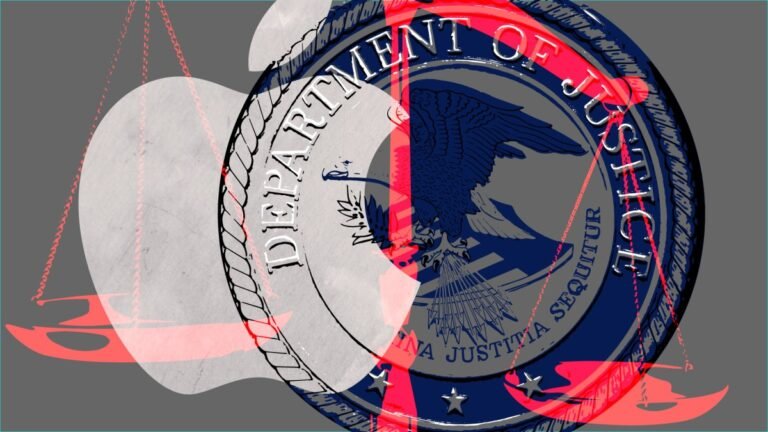DOJ accuses Apple of operating like a monopoly, and the implications of the case extend far beyond iOS and iPhones themselves
appleof antitrust control has reached a high fever. The US Justice Department announced Thursday that it has filed a lawsuit accusing the company of behaving like a monopoly in locking out iPhone customers and restricting competitors who make hardware and software. The lawsuit, which comes on the heels of major antitrust cases against Apple outside the US, is a broad and complex case, but we cover the details of the DOJ’s case, the industry’s response, and all the ongoing consequences for companies and customers.
We’ll update this page as Apple’s antitrust case develops, but keep in mind that little will be settled in the short term. Experts estimate a timeline of three to five years for any resolution of the case.
The DOJ’s claims against Apple
If you want to dive right into legal documents, you can read the DOJ lawsuit here. But for the rest of us, there are five categories that the complaint identifies as areas in which Apple actively stifled competition.
“Super” applications: These are applications that contain numerous functions within a single application. This will ring a bell for anyone following Elon Musk’s “everything app” ambitions for the X, and the DOJ claims that Apple is hindering their success to increase reliance on the iPhone.
Messaging apps: The blue bubble, green bubble effect is specifically cited by the DOJ as a factor that discourages iPhone users from adopting a competing device. “This effect is particularly strong for certain demographics, such as teenagers — where the iPhone share is 85 percent, according to one survey,” the DOJ said in the lawsuit.
Cloud Streaming Game Apps: The DOJ’s lawsuit highlights Apple’s alleged opposition to cloud-based gaming, arguing that its actions are aimed at preventing consumers from playing games “without requiring users to purchase powerful, expensive hardware.”
Digital Wallets: Although the 0.15% fee Apple takes on all transactions made through Apple Pay is a fraction of the company’s total revenue, the DOJ claims that the ubiquity of Apple Pay in its mobile ecosystem means it has “ full control’ over users’ NFC payments and that it blocks competitors.
Cross-Platform Smartwatch Compatibility: This DOJ claim is clear. By limiting the Apple Watch’s functionality with non-iPhone devices, the lawsuit claims, it “makes it more costly for that user to purchase a different type of smartphone.”
The response from Apple and the wider industry
Apple issued a lengthy rebuttal to the DOJ’s allegations on Thursday, which you can see in full detail here. The core of Apple’s argument is that regulators selectively choose metrics that make Apple’s smartphone market power appear more dominant than it actually is, in their view. And in terms of regulating what the DOJ claims are monopolistic practices, Apple’s competitive advantage in the market would be diminished, and iPhone customers would be adversely affected in the process.
“This lawsuit threatens who we are and the principles that set Apple products apart in fiercely competitive markets. If successful, it will hinder our ability to create the kind of technology people expect from Apple – where hardware, software and services intersect,” Apple said in a statement provided to TechCrunch.
App makers are less critical of the DOJ’s case, with the Coalition for App Fairness (CAF) voicing strong support for the DOJ’s regulatory action, which is not surprising given that many of its members, such as Epic Games and Spotify, already have public disputes with Apple over its App Store practices.
“The Justice Department’s complaint details Apple’s long history of illegal behavior — abusing App Store guidelines and developer agreements to raise prices, extract exorbitant fees, degrade user experiences and stifle competition.” CAF Executive Director Rick VanMeter said in a statement Thursday. “The Department of Justice joins regulators around the world who have recognized the many harms of Apple’s abusive behavior and are working to address it.”
What could this mean for iPhone users and what’s next?
In the immediate future, not much. The release of the lawsuit and the ensuing spat between Apple and the Justice Department has been a flurry of activity that will take years to sort out. The Justice Department’s antitrust case against Google, which was filed in 2020, went to trial last year and may take a few more years to reach a conclusion.
What you shouldn’t expect is the present to play out like the past. Although the Justice Department cites the successful antitrust prosecution against Microsoft in the 1990s, there are many distinctions between the two cases, most notably a gap between how easily Microsoft’s market dominance was established compared to Apple’s current status quo.
For more on Apple’s antitrust lawsuit, see here:
